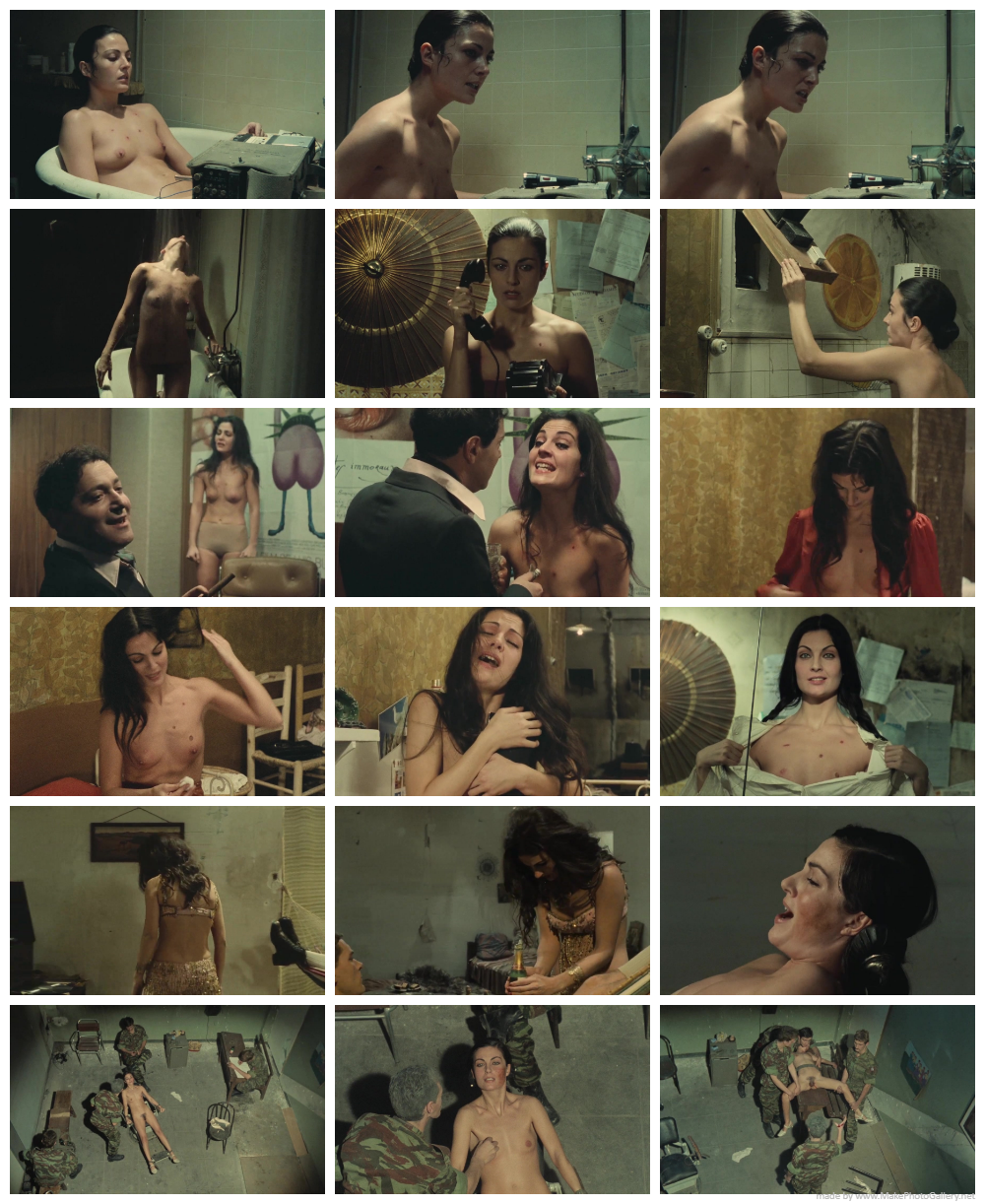
Papatakis gives the film-within-a film and movies-about-moviemaking sub-genres a whole new spin with this anti-establishment tale of a director’s widow Galai (Olga Karlatos) who follows the directions of her missing-in action husband in preparing for her role prior to a pitch session for seed money, in order to complete the half-finished movie about the French occupation of Algeria.
This, however, becomes a ruse, because Galai is seemingly aware that part of her goal is to destroy a faction of the French bourgeoisie – investors and snooty colleagues who treat her as a servant and object of ridicule. Rather than bow to their torments and further humilations, she seeks to cross over from her film role into reality, and make an impact through a real-life act of total destruction.
Whether the film is approachable as an allegory, satire, or harsh critique of French colonialism, Tortura is not for the squeamish, even though it’s neither a gore film nor insane erotic romp.
Galai’s masochistic method acting includes torturing herself to achieve the right scream for her character; doing scene run-throughs with a live bomb; and humiliating herself in sexual poses, plus one act involving digestive expulsions. When she finally shows an assembly of the unfinished films to the batch of snooty investors, two sequences detail a ‘bottle trick’ sequence, and a brutal torture scene which Papatakis films from a high angle in one long take.
These are the film’s most controversial and likely most-talked about elements, but beneath the garish and the profane is a rather brilliant, anarchic, cinematically playful storytelling technique. While not fully linear, Tortura has a coherent plot even though Galai’s reality is never fixed. We also never know if she’s being influenced by real or imagined forces, and whether Papatakis’ film is one big political salvo much in the way of Dusan Makaveyev’s W.R.: Mysteries of the Orgasm (1971) involves the signing decapitated head of a political agitator, or his Sweet Movie (1974) and its excrement dinner.
Tortura isn’t an exercise in surrealism, but more performance art, and Karlatos is brilliant as the tormented actress who gradually loses her mind in what may be a make believe terrorist crusade orchestrated from the grave by her anarchic director / husband Hamidas. It’s a great performance by an actress better known for more commercial genre films – the spaghetti western Keoma (1976), shockers Cyclone (1978) and Lucio Fulci’s Zombie (1979) and Murderock (1984) – and a handful of TV and film appearances, notably Prince’s mother in Purple Rain (1984).
As revolting / appalling as the sexual torture may be, it is in context with the character’s shift from actress to terrorist, and Papatakis stages some brilliant sequences. The best is perhaps Galai’s bank bombing run-through, which has both wit and a mounting fear that she may err and blow herself to bits as she works out the correct blocking and performance beats.
Papatakis also makes use of some striking decrepit locations. Galai resides in a bombed out apartment block, and her building is a disintegrating by the second. The production most likely decorated a condemned, derelict building, and the omnipresent decay provides potent subtext in her scenes prior to venturing to France for financial backing. There’s also a few intriguing editorial touches, especially the zoomed-in masking of a notice informing Galai of imminent danger.
Nico Fidenco, no stranger to controversial films – he scored Joe D’Amato’s snuff-centered Emanuelle in America (1977) – wrote an appropriately peculiar score with upbeat cues accentuating Galai’s terrorist actions, and abstract ‘rubbing sounds’ for the bomb montages. In spite of One 7 Movies’ beat-up source print, Frederic Variot’s cinematography is very arresting, accentuating the grunge of Galai’s wretched apartment and the garishness of the ugly upscale Parisian apartment where the film terminates.
Part drama, experimental, and sexploitation, this is not a nice movie, but worth the time for those interested in films designed to provoke audiences with blunt force trauma towards their moral cabinet.









